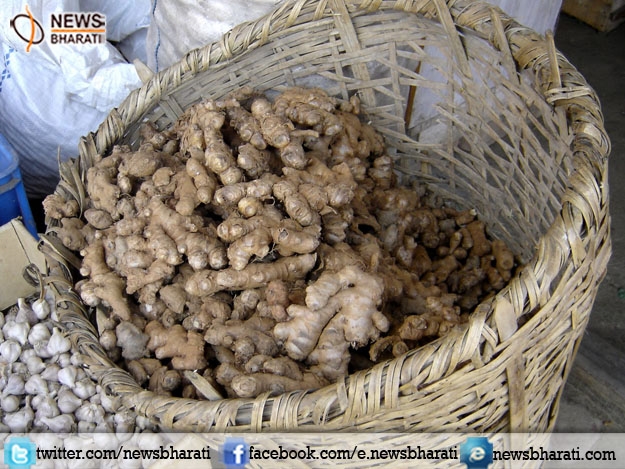GST exemption for Nepali ginger exports to ease cross border trade
New Delhi, October 30: India has agreed to prohibit the 5% tax previously levied as per the GST on import of fresh ginger from Nepal. India is a major importer of Nepali ginger, both fresh and processed (94%).

A statement issued by the Commerce Ministry on Friday also stated that the problem has been resolved and Nepali farmers and traders can start exporting the product to India without paying any tax.
Earlier, Indian customs officials had started imposing 5 percent GST on Nepali ginger and had asked Nepali traders to get necessary permits from the central government to get a waiver on import duty.
Nepali officials held meetings with the Customs Commissioner at Silguri and other Indian customs officials on Tuesday. During the meetings, Nepali officials requested the Indian side to allow entry of fresh Nepali ginger without being subject to any kind of tax or permit, as Nepal-India Trade Treaty has ensured free access for Nepali agricultural products to India.
Nepali traders have long been exporting fresh ginger to India. However, fresh Nepali ginger being exported to India was lumped together in ‘other ginger’ category, which also included ‘dry ginger’ that attracts GST in India.
During the meetings, Nepali side requested that fresh ginger be kept under ‘fresh ginger’ category. “The meeting did produce positive results. But this is a stopgap measure. The ministry will find a permanent solution to this problem soon,” Bhatta said.
Globally, Nepal is the third largest ginger producer after China and India. According to Nepal Ginger Profile 2016, which was produced jointly by the UK Aid-funded Samarth-Nepal Market Development Programme and the Nepal Ginger Producers and Traders Association, the ginger grown in Nepal is high in oil and oleoresin, and can be sold to large industrial buyers in India and other countries if output is increased and quality is ensured.